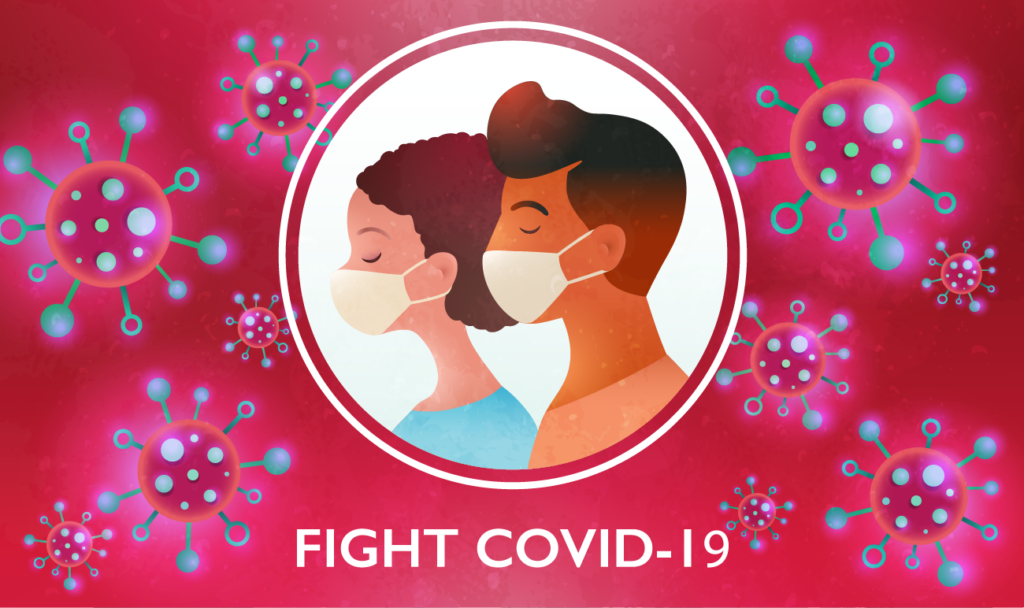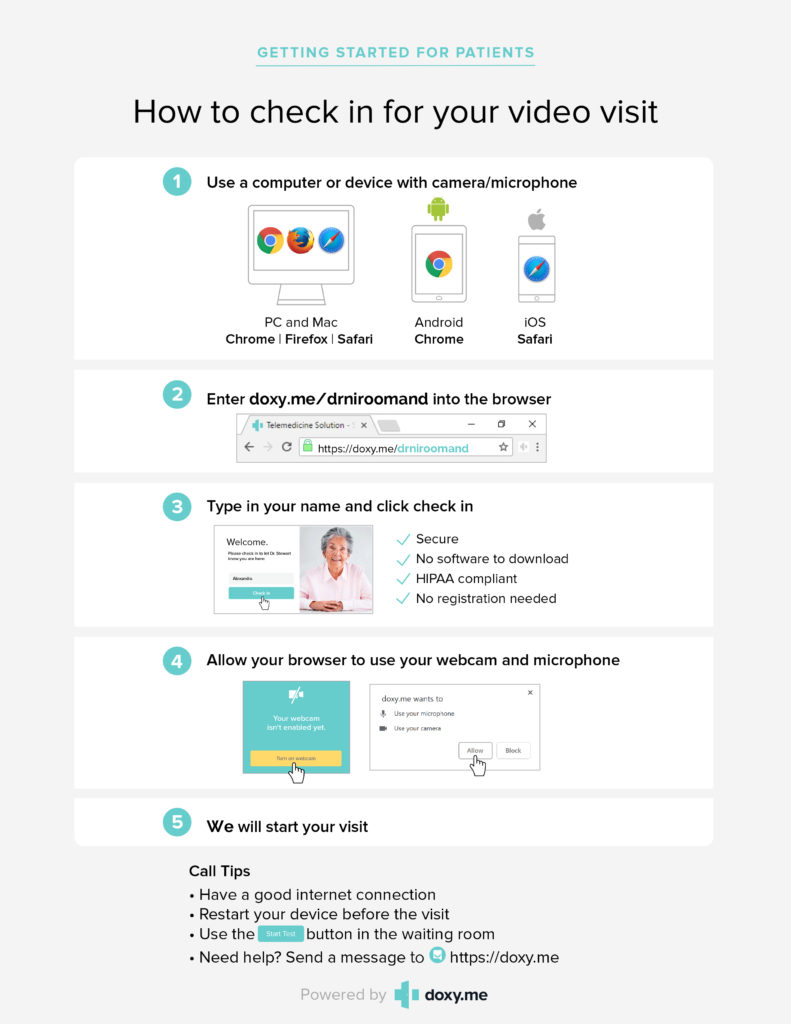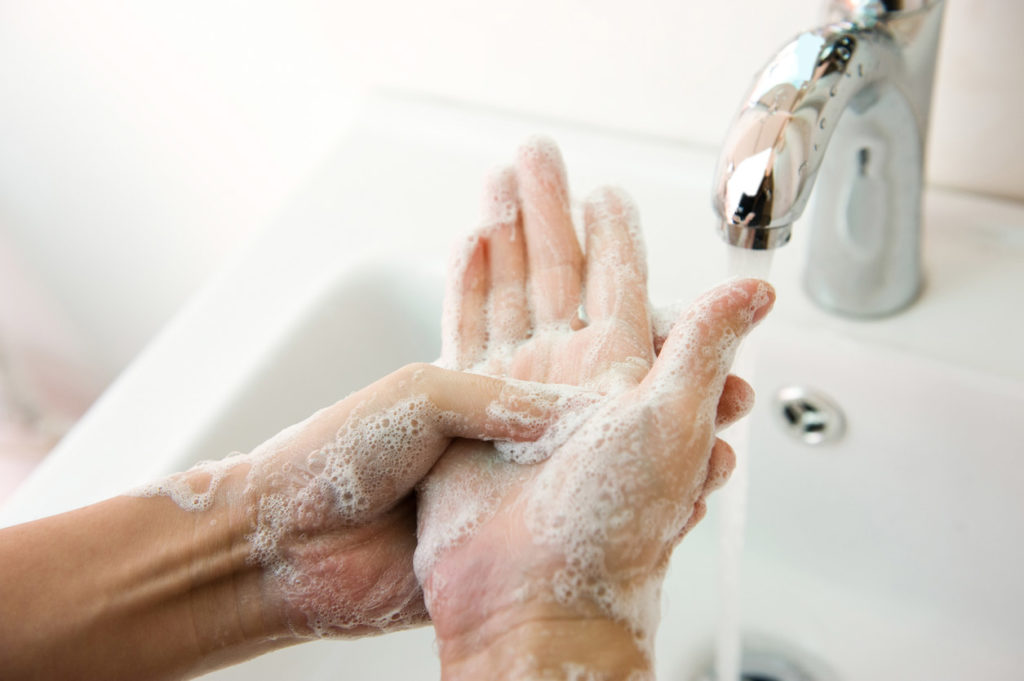
Last updated Friday, March 5, 2021 at 6:56 p.m.
As the situation with the novel coronavirus and COVID-19 evolves, we will continue to update this page.
As the CDC recommends, Uptown Dermatology will continue to require masks for all individuals in our office. We firmly stand behind this scientifically-proven safety measure, and are meeting or exceeding recommendations from the CDC and the Texas Medical Board, as your safety is our top priority.
Patients who feel sick and think they have the cold, flu or COVID-19 should contact their primary care doctor by phone. Do not go in unless instructed. If it is urgent and you need to come to our office while sick, please notify staff so we can guide your care accordingly.
Where We’re At & What We’re Doing
Uptown Dermatology is scheduling in-office visits at a reduced capacity. Given the uncertainty of COVID-19 pandemic, minimizing exposure to our patients and staff is our main goal. We are implementing and exceeding the recommendations from the CDC and the Texas Medical Board. Please be advised that no matter how much precautions we take there would be some risk of transmission whenever you schedule an in-office visit. In our specialty, we cannot perform our duties maintaining physical distancing. We encourage you to continue to make teledermatogy appointments if you think your problem can be addressed that way.
These are the guidelines we are following until directives from health authorities modify the recommendations:
- We are limiting how many patients are seen daily. This will allow the health care providers to properly disinfect after each patient visit. Unfortunately, this will cause significant delays in getting an appointment when you call. Again, if you think you are a candidate for a telehealth visit, please let us know. Guests and family members are not allowed to accompany a patient to the office unless the patient is a minor or disabled. Guests are encouraged to wait in their cars until the patient is discharged.
- Everyone is required to wear a mask covering the mouth and nose when entering the building.
- All patients are required to use hand sanitizer as soon as they enter the office.
- Everyone is required to complete a COVID-19 Questionnaire upon entering office.
- Temperatures are checked upon arrival to the office. Patients are not allowed to wait in the waiting room.
- Examination rooms are cleaned and sanitized after each patient encounter.
- If you are experiencing a fever, cough, difficulty breathing, or loss of taste and smell, please reschedule your appointment and call your PCP (primary care provider). If you feel your rash still needs to be checked out, we can arrange a teledermatology evaluation and if need be an in-person visit.
Please call 214-303-1102 to schedule an appointment or if you have questions. For our normal hours and special closures, consult our Contact page.
Now Providing Teledermatology Appointments
In order to meet vulnerable patients’ needs and minimize exposure to coronavirus, we have launched teledermatology appointments so we can see patients with the conditions above and for medication refills.
Teledermatology is a form of video conference where Dr. Niroomand will be able to talk to you and examine your skin. You may want to be in a space with some privacy in case sensitive areas of the skin need to be examined. The platform is easy to use and there is no extra software to download.
The teledermatology platform is accessible on computers and mobile devices with cameras and microphones. Chrome, Safari and Firefox are all supported. See the flyer below for more information about how it works. Video appointments are preferred but phone is also an option.
Applicable co-payments and deductibles are required at the time of service. A very reasonable fee schedule is established for those that do not want to use insurance.
To schedule a virtual appointment, please call our office at 214-303-1102. We will send a link via text or email address to click on and follow steps to connect to our office.
Here is more detail about how the virtual medical appointments will work:

After evaluating you via teledermatology, it may be necessary for you to come to the office anyway. You will need to notify us when you arrive so we can inform the building security to let you in. On the day of your in-person appointment, you and anyone required to accompany you will be required to fill out this COVID-19 questionnaire.
If you answered yes to any of these questions and you don’t have an urgent skin issue, please cancel your appointment and contact your primary care provider (PCP) or call the State Health Department: 1-877-570-9779.
Other Safety Measures
We’re doing things we’ve always done to keep the office sanitary, as well as added new safety measures. These things include:
- Asking patients to call their primary care doctor for the best way to get diagnosed and treated if they have symptoms of cold or flu. It is better to call than make an appointment to see a provider. Some doctors may be able to visit with you via telemedicine (electronically)
- Switching all patients to teledermatology appointments first
- Asking patients to use the antiseptic cleaner in the waiting room before filling out the sign-in sheets and other forms
- Requiring all patients to fill out a questionnaire regarding possible exposure to COVID-19 on the day of their appointment
- Following and exceding CDC and Texas Medical Board guidelines about visitors: Anyone who is not a patient should not enter the facility unless the scheduled patient requires assistance. Each patient may only have one individual with them during their visit, and that person must also fill out the COVID-19 questionnaire. If the assisting person has respiratory symptoms or a fever, we ask patients to reschedule their appointment or find an alternative individual to accompany them.
- Requiring staff to wear masks at all times
- Disinfecting examination tables & chairs in patient rooms, as well as change table paper, after each patient
- Disinfecting the waiting room daily
- Stocking hand sanitizer in all exam rooms in addition to having soap by all sinks
- Directing staff to wash hands or sanitize before entering and before leaving exam rooms. All staff required to put on gloves immediately after washing hands
- Requesting staff to stay home if they feel sick
We will continue to adapt as the situation evolves, as your health is our top priority. Plus, we are in communication with our building management team to coordinate our protocols for a safer environment should you have to come in.
Coronavirus 101
Coronaviruses is a family of viruses that causes upper respiratory infections ranging in severity from the common cold to more serious diseases like Severe Acute Respiratory Syndrome (SARS). COVID-19 is the disease caused by the new strain of coronavirus.
Symptoms
Main symptoms of COVID-19 include fever, tiredness, and dry cough. Other symptoms people may have include loss of smell or taste, aches and pains, nasal congestion, runny nose, sore throat or diarrhea.
Who is at greatest risk
According to the World Health Organization (WHO), most people (about 80%) recover from the disease without needing special treatment. However, older people – and those with underlying medical problems like high blood pressure, heart problems or diabetes – are more likely to develop serious illness or die.
How it’s spread
Scientists are still learning about how the virus is spread, but the main transmission is thought to be from person to person.
When a person with COVID-19 coughs or sneezes, they release small droplets that land on objects and people around them. Other people are infected when they touch that object and then touch their eyes, nose or mouth, or when they inhale a droplet if they are in close proximity to someone with COVID-19. This is why you should try to stay more than 6 feet from someone who is sick.
If you have symptoms
If you have fever, cough and difficulty breathing, call your primary doctor’s office or emergency room before going in so they can guide your care.
How to take care of yourself
These are the main things to do to prevent from getting sick:
- Clean your hands often.
- Either wash with soap or water for at least 20 seconds, or use a hand sanitizer that contains at least 60% alcohol. Do this after you’ve been in a public place, or after blowing your nose or coughing.
- Avoid touching your face with unwashed hands.
- Avoid close contact with people who are sick, and put distance (6+ feet) between yourself and other people in public places.

Please protect others when you are sick with these steps:
- Stay home if you are sick. Here are other tips from the CDC if you are sick.
- Cough or sneeze into your elbow or a tissue. Then, immediately wash your hands or throw away the tissue.
- Throw used tissues away immediately.
- Wear a facemask if you are sick and have to be around other people (i.e. in the same room or vehicle). If you are healthy, you do not need to wear a mask unless you’re taking care of someone who is sick and unable to wear a mask. Facemasks may soon be in short supply, and they should be saved for caregivers.
- Clean and disinfect frequently touched surfaces daily such as light switches, doorknobs, countertops, etc.
Stigma
People of all races and ethnicity can become infected. No one race or ethnicity is more likely to become infected by COVID-19. People who have been in close contact with a person known to have COVID-19 or people who live in or have recently been in an area with ongoing spread are at an increased risk of exposure.